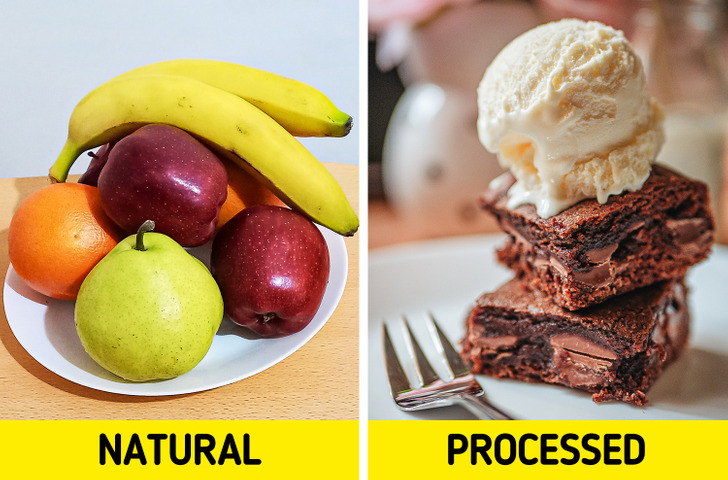What Sugar Does to Your Brain
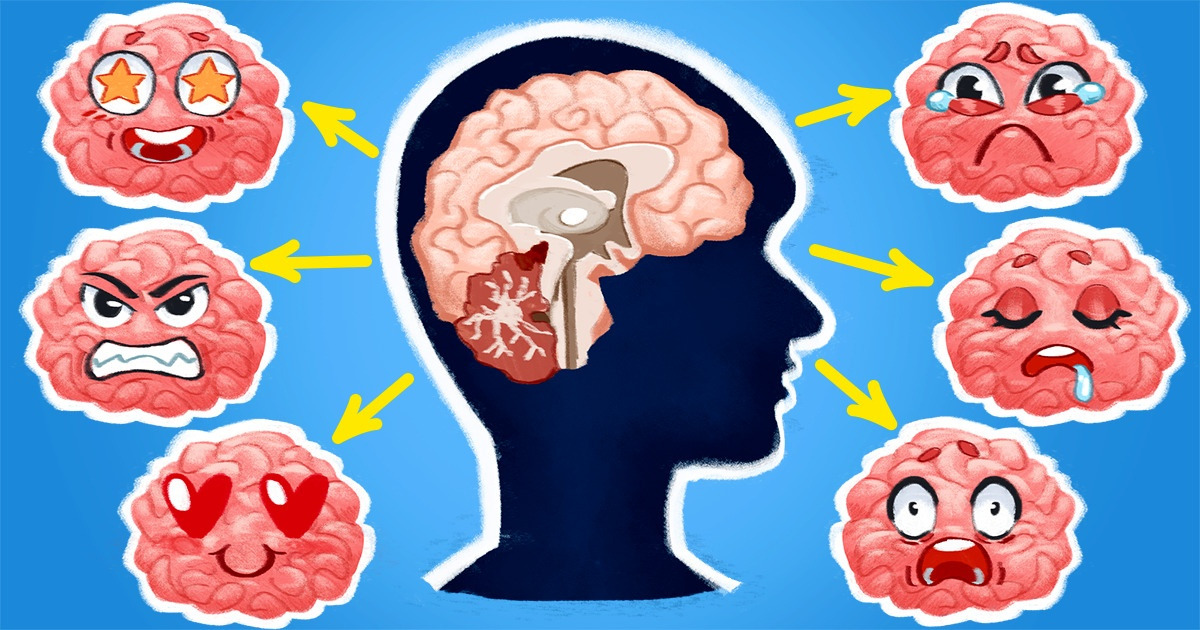
We may be consuming more sugar than we need because most non-sweet foods may contain added or hidden forms of it. Adding more sugar or sweets into our diet may significantly affect our brain. Some of the brain’s centers may also make a person dependent on it.
5-Minute Crafts prepared this article for you to explain what needs to be known for your brain’s health.
❗ Important: All the information represented in the article is for informational purposes only.
1. What types of sugar there are
Glucose is a simple sugar that forms the basis of carbohydrate-rich foods. Many foods we consume are converted into glucose, which is necessary for the brain and organs to function. Sugar has many different names.
- Natural sugars are naturally found in foods, such as fructose in fruits or lactose in dairy products. When the fruit is consumed to meet the need for sugar naturally, you can also get vitamins, minerals, and fiber.
- Refined (processed) sugar is produced from sugar cane, sugar beet, or corn. They’re added to some sugary drinks, like tea and coffee, or snacks, like bread, cereals, plant milk (like oat milk), granola bars, etc. Unlike natural sources, refined sugar contains almost no vitamins, minerals, fiber, fat, protein, etc. It may cause problems with the heart, blood sugar, and weight gain, as it can be easy to overconsume it.
2. How your body develops a psychological response to sugar
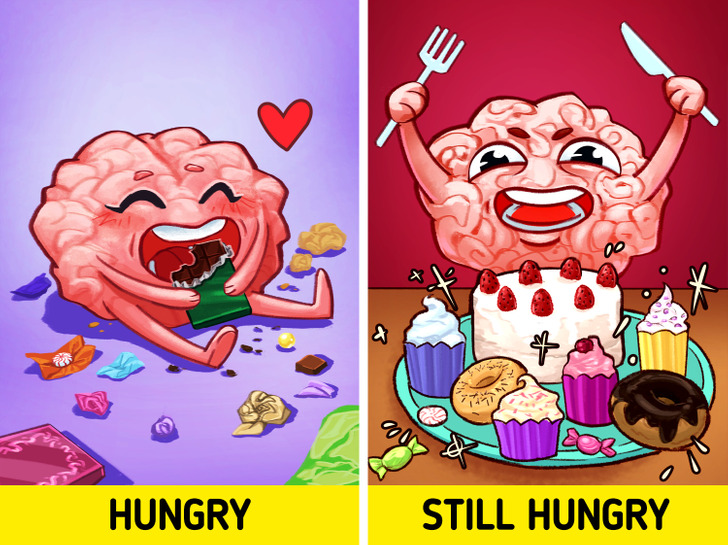
The moment sugar touches your tongue, it triggers your tongue’s sweet-taste receptors, informing your brain that the sweets have entered the body. One of the most critically stimulated parts of the brain is the reward region, which may cause some problems, such as losing control over the food you eat if activated too much.
Upon consuming sugar, our brain and gut work together to release a pleasure chemical (dopamine) that delivers a message to the brain. The more the brain wants the pleasure of dopamine, the more addicted you become. This effect isn’t seen when eating broccoli because the brain doesn’t release much dopamine when eating vegetables.
3. Sugar may affect your memory.
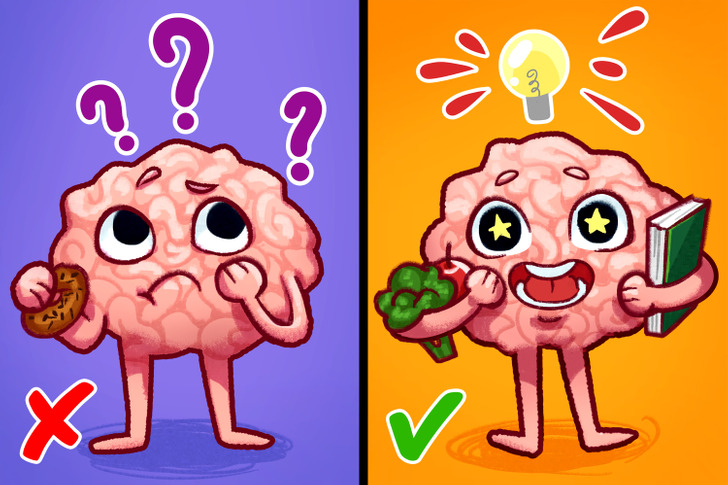
When consumed in moderate amounts, sugar doesn’t do significant harm to the body. However, research carried out on rats has shown that a rapid rise in blood sugar may adversely affect the brain’s key memory area and block our memory receptors. An elevated blood sugar level links to impaired memory issues and diseases. Another study on rats found that a diet high in added sugar, exceptionally high in fructose corn syrup, has adverse effects on our neural functioning. Practicing a healthy eating style fixes these things.
Solution: Swap out sugar for blueberries, spinach, broccoli, and olive oil.
4. Sugar may affect your mood.
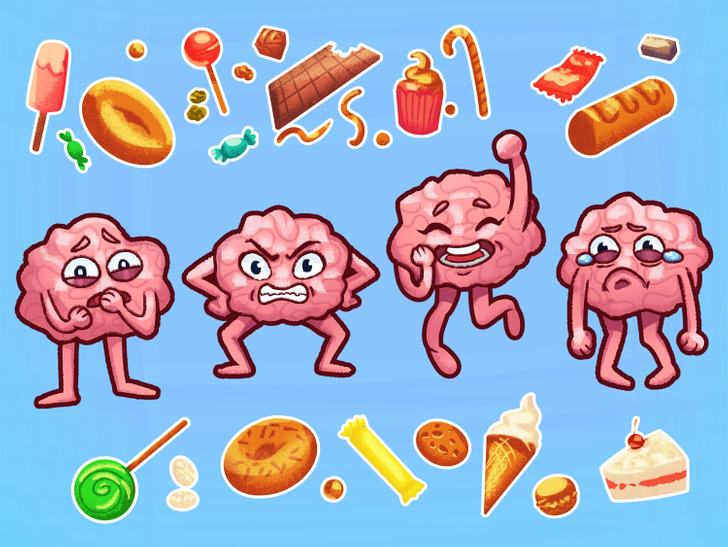
Overeating sugar may cause mood disorders and irritability due to changes in your hormone levels. Adding excess sugar into your diet may overstimulate the brain and lead to mood fluctuations, yet these are short-lived. A recent study has found that those who consumed less meat and dairy but more whole foods highly rich in fruits, vegetables, and fish, which reduce inflammation, were less prone to mood swings.
- It can also wear out your ability to deal with stress and anxiety. Some people may want to consume more sugary foods (comfort food) and snacks to increase their serotonin levels.
Solution: Swap sugar out for oily fish, walnuts, blueberries, avocados, and bananas. - Excess sugar may lead to personality changes, as high sugar may block some naturally balancing chemicals, such as vitamin B and chromium, leading the person to have outbursts of irritability and aggression.
Solution: Swap sugar out for kale, arugula, kimchi, and natural yogurt.
5. Sugar may affect your cognitive functions.
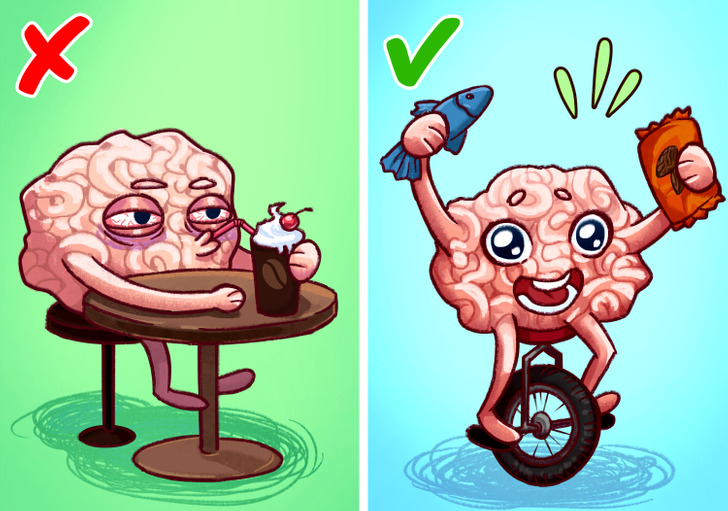
Excessive sugar intake may significantly affect our self-control, cognitive skills or functions, decision-making, overeating, excessive weight gain, etc.
- High blood sugar (glucose) may damage blood vessels and cause problems in diabetes with learning, motor speed, etc. Sugar stimulates the ’’reward center’’ of the brain, which, in turn, may produce addiction effects. Upon consuming sugary foods, the glucose level goes down in 20 minutes, causing the person to lose focus.
Solution: Swap sugar out for oily fish, dark chocolate, and almonds. - Consuming sweetened foods and added sugar, such as fructose and sucrose, may cause cognitive impairment in the brain. A study carried out on rats has found that a diet high in sugar intake affects cognition in all age groups, even if it is a short-term intake.
Solution: To improve your cognitive skills, it’s a good idea to opt for lower-sugar or no-sugar snacks and a healthy diet balanced with fat, protein, and carbohydrates.
Bonus: how to track added sugars on ingredient lists
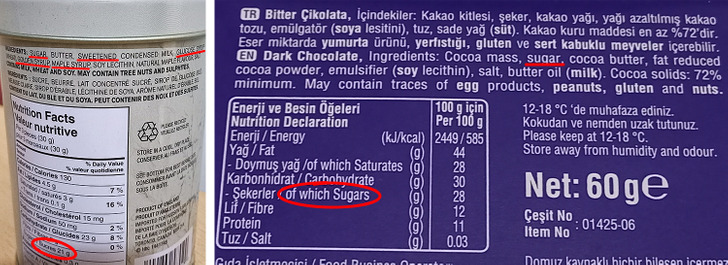
Read the words that end in:
- “Ose,” like fructose, dextrose, glucose, lactose, maltose, sucrose
- Syrups, like high-fructose corn syrup, malt syrup, maple syrup, agave syrup
- Nectars, like pear nectar and peach nectar
- Juices, like fruit juice and cane juice
- Any mention of “sugar” or “sweetener,” like palm sugar and evaporated sweetener
- Honey, brown sugar, invert sugar, malt sugar, raw sugar, corn sweetener, molasses, fruit juice concentrates, etc.
